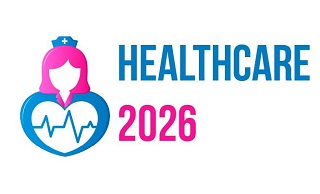International Conference on
Healthcare and Advanced Nursing
March 26-27, 2026 | Osaka, Japan

Address: 1 Chome-9-15 Shinkitano, Yodogawa Ward, Osaka, 532-0025, Japan
Healthcare 2026

Praboromarajchanok Institute, Thailand
Abstract:
This prospective longitudinal study examined self-care behavior trajectories among patients with poorly controlled type 2 diabetes after participation in a six-month self-care promotion program. It also explored relationships between trajectories and clinical outcomes, as well as factors influencing behavioral changes. A self-care trajectory analysis was employed with a sample of 40 patients. Research instruments included: (1) a general information questionnaire, (2) the Diabetes Self-Care Activity Index, (3) a self-care confidence questionnaire, and (4) fingertip blood glucose records. Instruments demonstrated content validity (CVI=0.89) and reliability (Cronbach’s alpha=0.91). Data were analyzed using descriptive statistics and repeated-measures ANOVA to assess changes at three and six months.Results revealed self-care confidence trajectories of poor-poor (5.0%), poor-good (7.5%), good-poor (32.5%), and good-good (55.0%). For self-care maintenance: poor-good (2.5%), good-poor (22.5%), and good-good (75.0%). For self-care management: good-poor (30.0%) and good-good (70.0%). For self-care monitoring: good-poor (15.0%) and good-good (85.0%). Mean self-care maintenance and monitoring improved at six months, while self-care management declined initially before a slight recovery at six months.
Biography:
Nannapath Saramad is currently a lecturer at Boromarajonani College of Nursing, Nakhon Si Thammarat, Faculty of Nursing, Praboromrajchanok Institute. She graduated with a Master of Nursing Science (M.N.S.) in Adult Nursing from Walailak University in 2018 and a Bachelor of Nursing Science from Boromarajonani College of Nursing, Nakhon Si Thammarat in 2013. And specializes in critical care nursing for adults and the elderly, and the science and art of nursing education. Her research interests include chronic illnesses in adults and the elderly, prevention and risk reduction management for cardiovascular diseases, stroke, and diabetes, as well as SBL in nursing education.
